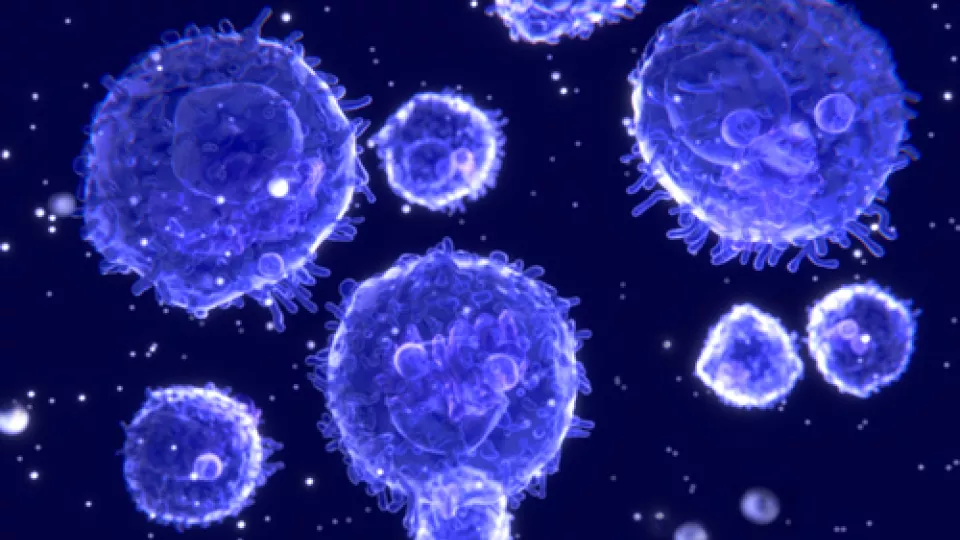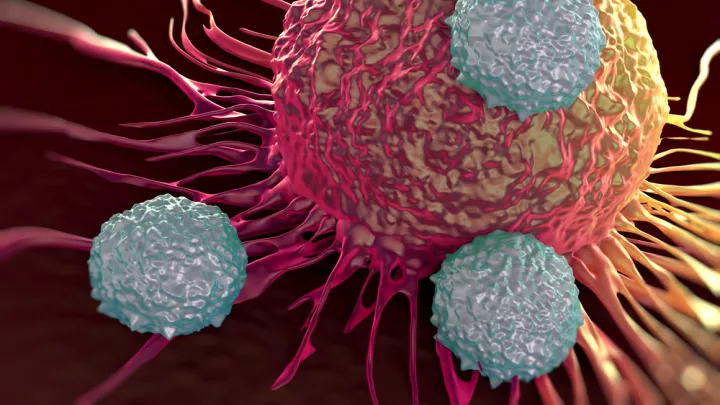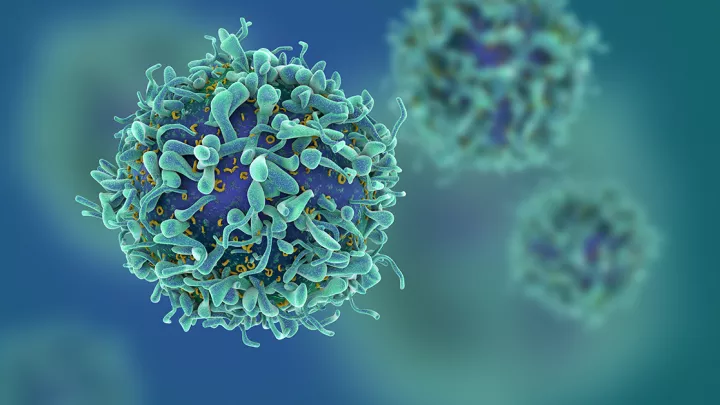
Clinical Trial Results: Patients with Leukemia Show High Remission Rates after Immunotherapy
B-cell acute lymphoblastic leukemia (B-ALL) is the most common childhood cancer, affecting over 6,000 kids and young adults each year. Approximately 90% of B-ALL patients will achieve remission through traditional treatments, such as chemotherapy and radiation. However, the majority of patients who relapse or do not respond to standard therapies die from their leukemia. In cases such as these, researchers are turning to immunotherapy, where they can “train” the body’s own immune system to attack the invading cancer cells. A recent early-phase clinical trial has shown that patients with chemotherapy-resistant B-ALL experienced high remission rates following treatment with experimental immunotherapy. The corresponding results were published on October 13 in Lancet.
“This represents a powerful new approach to treat chemotherapy-resistant ALL. The complete remission rates on this trial were significantly higher than we have seen with other new therapies tested in this population,” says Alan Wayne, MD, director of the Children’s Center for Cancer and Blood Diseases at Children’s Hospital Los Angeles. Wayne headed the study during his position as clinical director of the Pediatric Oncology branch of the National Cancer Institute at the National Institutes of Health (NIH).
In this trial, investigators reprogrammed the patient’s own T cells to recognize and kill any cell with a specific protein, CD19, on its surface. CD19 is found on almost all B cells (both normal and cancerous), making it an ideal target for B-ALL immunotherapy.
Researchers also found a way to collect, modify, and grow the modified T cells in only 11 days—a crucial accomplishment since the health of patients with B-ALL can deteriorate rapidly. Investigators then went on to observe the study participants and assess the feasibility of this specific immunotherapy, determine its toxicity, and define the highest dose of the modified T cells that patients could tolerate.
Between July 2012 and June 2014, 21 patients (aged 1 to 30) who did not respond to standard chemotherapy were enrolled in the trial and infused with the modified T cells. A complete remission was observed in 14 out of the 21 patients, and 12 patients had absolutely no detectable evidence of leukemia upon completion of the tested immunotherapy.


